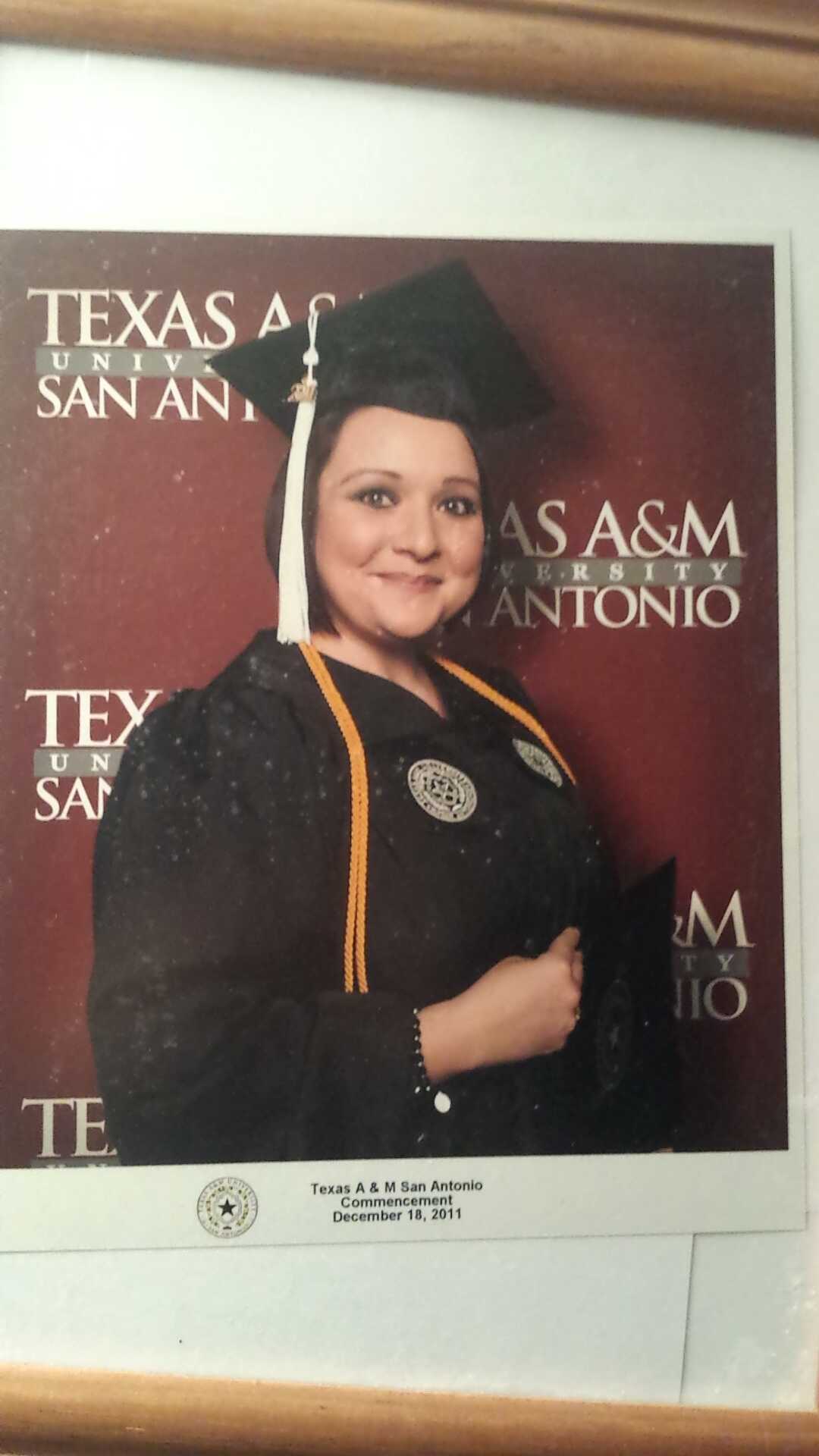TRANSCRIPTION
Explain a day you remember from your childhood?
I remember the day I was eight years old and I had an accident. We were watching the homecoming parade on October 1985. A friend of mine and I were watching a jalapeņo eating contest. We were standing on some steps after the competition the last person jumped off the trailer we were sitting on, the trailer shifted and landed on both my feet. I pulled my right foot out but the trailer caught my left foot. A crowd of people including my brother carried me and I waited two hours in a police car, for the ambulance to arrive. Once they arrived I was transported to South West General Hospital. It changed my life forever.
What did you and your siblings do after school?
We rode bikes around the house and played outside till right before dark or till super was made.

What were your basic subjects to take in high school?
We were required to take Math, Biology, Algebra, Geometry, Science, History, and Government.
Did you have to do any chores after of before school? And what were they?
Yes I had to do chores, they were to wash dishes and wash my own clothes. Our mother did do that for us for very long so we had to learn to do it on our own. We had to make sure they were all done before bed or before any curricular activities and homework.
What was the River walk like when you were young?
The River walk was very plain, it didn't have as many historical and information that it has today. It didn't have as many restaurants, there was always construction. It was more for site seeing but there was no restaurants. The River boats were not as big as they are now. The tour was not as big as it is now; it was real plain it was real short. People have done a lot of history and research to bring up more about the River walk, so it's more enjoyable now.

Where were yours and your family's favorite place to eat on the river walk?
We never went to the river walk; she said her father didn't like crowds. He's a very anti-social person.
Was technology much different than it is now?
Oh yes she said, was different. She didn't have internet, there was satellite cell phones and floppy disks. Computers were much different very big; she didn't have any laptops, iPads, or tablets. Libraries had a lot of books, now they are all digital.
Is downtown San Antonio cleaner now?
Yes it's nicer now, much upgraded and they have extended it. There are plenty of trees and plants along the river and restaurants.
Is fiesta bigger than when you were my age till now? How and why?
Yes because it was held in downtown San Antonio now it is now in the Alamo dome parking lot. It was confined to a few streets in San Antonio.
ANALYSIS
My mother's life was much different than how mine is now, she played outside after school now I do chores or relax and watch TV. She had limited subjects in school, now we have medical terminology, anatomy, culinary, cosmetology, robotics, the sky is the limit when it comes to high school classes now a days. She described the river walk to be super different than how it looks today, its more colorful and full of life. It's the better side of San Antonio. I didn't know that my mother's was so simple and plain. I mean she didn't grow up with much money but she has really made mine and my brother's life's way more exciting than how she grew up. My views on this topic didn't change at all. She described the river walk in a very monotone voice like it made her think about how plain and simple it looked back then. I attempted to verify the story told to me by looking at her class pictures in my high school library, the classes were much smaller to be able to take a class picture at the river walk. My class would never be able to do something like that because we are too big of a class. The benefits of learning about the past from another person's perspective is hearing how they saw the work from anyone else and the experiences she or he went through when we didn't have this or that like we do today. I believe doing an oral history report is effective because it's important to know how far we have come from city to city, town to town. You won't get to listen to such amazing stories without this oral history report. Also because the internet doesn't tell you everyone's story just what they want you to hear.

